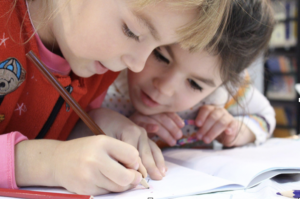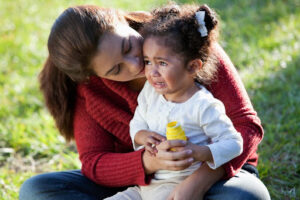
We’ve all been there. Your language learner is indicating they want something. They might be crying, vocalizing, reaching for, or gazing at the item of their desire. As caretakers, we often anticipate their needs and are readily available to help. In this space between their indication and your response, however, is a great language learning opportunity. Our goal is to increase language use by: capitalizing on these organic moments, purposefully creating opportunities for communication, and providing models of language. Here are some helpful tips and tricks used in speech therapy sessions that can be used in the home and out in the community:






